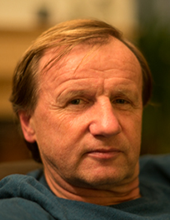Energy-aware Systems
The scientific questions of the research area result from the responsible use of system resources, whose administration is typically in the hands of an operating system. Careful use of the available energy resources for the execution of pending tasks (i.e. processes, threads) plays a decisive role here. The coordination of operating system functions with the processes at the application level on the one hand and the best possible use of the computing-system hardware to reduce the power requirement during operation on the other hand are the basic prerequisites for establishing energy awareness at the system level. The work in the research area relates to heterogeneous systems of different system classes: from embedded systems to server systems to systems for high-performance computing.
Projects:
Funding source: DFG-Einzelförderung / Sachbeihilfe (EIN-SBH)
Project leader: ,
Funding source: DFG / Forschungsgruppe (FOR)
Project leader:
Im Kontext der Gesamtvision der Forschergruppe BATS ist es das Ziel des Teilprojekts ARTE (adaptive run-time environment, TP 2) eine flexible Systemsoftwareunterstützung zu entwickeln. Diese soll es ermöglichen, für die Verhaltensbeobachtungen von Fledermäusen (TP 1) verteilte Datenstromanfragen (TP 3) auf einem heterogenen Sensornetzwerk (TP 4), bestehend aus stationären (TP 5) und mobilen (TP 7) Sensornetzwerkknoten, zu etablieren. Eine besondere Herausforderung stellen hierbei die knappen Ressourcen dar, im speziellen Speicher und Energie, sowie die wechselhafte Konnektivität der nur 2 g schweren mobilen Knoten. In Anbetracht dieser vielfältigen und teilweise konfligierenden Anforderungen soll ARTE in Form einer hochkonfigurierbaren Softwareproduktlinie realisiert werden. Ziel ist es, sowohl die unterschiedlichen funktionalen Anforderungen zwischen mobilen und stationären Knoten zu unterstützen, als auch wichtige nichtfunktionale Eigenschaften, wie niedriger Speicherverbrauch und Energieeffizienz. Entsprechend soll schon bei der Entwicklung von ARTE der Konfigurationsraum werkzeuggestützt und gezielt auf nichtfunktionale Eigenschaften untersucht werden, um gemäß der Anforderungen an das Projekt später im Einsatz eine optimierte Auswahl von Implementierungsartefakten zu bieten. Dabei ist explizit die dynamische Anpassbarkeit von Anwendungs- wie auch von Systemfunktionen zu berücksichtigen. Auf funktionaler Ebene wird ARTE Systemdienste in Gestalt einer Middleware bereitstellen, die Anpassung und Erweiterung zur Laufzeit unterstützt und auf Datenstromverarbeitung zugeschnitten ist, um eine ressourceneffiziente und flexible Ausführung von Datenstromanfragen zu ermöglichen.
Funding source: Bayerisches Staatsministerium für Wirtschaft und Medien, Energie und Technologie (StMWIVT) (ab 10/2013)
Project leader:
Funding source: DFG-Einzelförderung / Sachbeihilfe (EIN-SBH)
Project leader: ,
The current trend toward fast, byte-addressable non-volatile memory (NVM) with latencies and write resistance closer to SRAM and DRAM than flash positions NVM as a possible replacement for established volatile technologies. While on the one hand the non-volatility and low leakage capacity make NVM an attractive candidate for new system designs in addition to other advantageous features, on the other hand there are also major challenges, especially for the programming of such systems.…
Funding source: DFG / Schwerpunktprogramm (SPP)
Project leader:
Funding source: DFG / Schwerpunktprogramm (SPP)
Project leader: ,
Virtual memory (VM) subsystems blur the distinction between storage and memory such that both volatile and non-volatile data can be accessed transparently via CPU instructions. Each and every VM subsystem tries hard to keep highly contended data in fast volatile main memory to mitigate the high access latency of secondary storage, irrespective of whether the data is considered to be volatile or not. The recent advent of byte-addressable NVRAM does not change this scheme in principle, because the…
Funding source: Deutsche Forschungsgemeinschaft (DFG)
Project leader: ,
Within the wide subject of resilience in networked worlds ResPECT focuses on a core element of all networked systems: sensor- and actuator-nodes in cyber-physical systems. Communication up to today is understood and implemented as an auxiliary functionality of embedded systems. The system itself is disruption-tolerant and able to handle power failures or in a limited scope even hardware problems, but the communication isn't part of the overall design. In the best case it can…
Contact Persons:
Participating Scientists:
Publications:
- , , :
Energy Claims at Scale: Decreasing the Energy Demand of HPC Workloads at OS Level
12th IEEE Workshop on High-Performance Power-Aware Computing (Chicago)
In: Proceedings of the 12th IEEE Workshop on High-Performance Power-Aware Computing (HPPAC) 2016 - , , , :
Worst-Case Energy Consumption Analysis for Soft and Hard Energy Systems
USENIX OSDI 2014 (Broomfield, CO, USA)
In: Proceedings of the 11th USENIX Symposium on Operating Systems Design and Implementation (OSDI 2014), Poster Session 2014
URL: https://www.usenix.org/conference/osdi14/poster-sessions - , , , , , :
Worst-Case Energy Consumption Analysis for Energy-Constrained Embedded Systems
Euromicro Conference on Real-Time Systems (Lund, Sweden)
In: Proceedings of the 27th Euromicro Conference on Real-Time Systems (ECRTS '15) 2015
DOI: 10.1109/ECRTS.2015.17
URL: https://www4.cs.fau.de/Publications/2015/waegemann_15_ecrts.pdf



